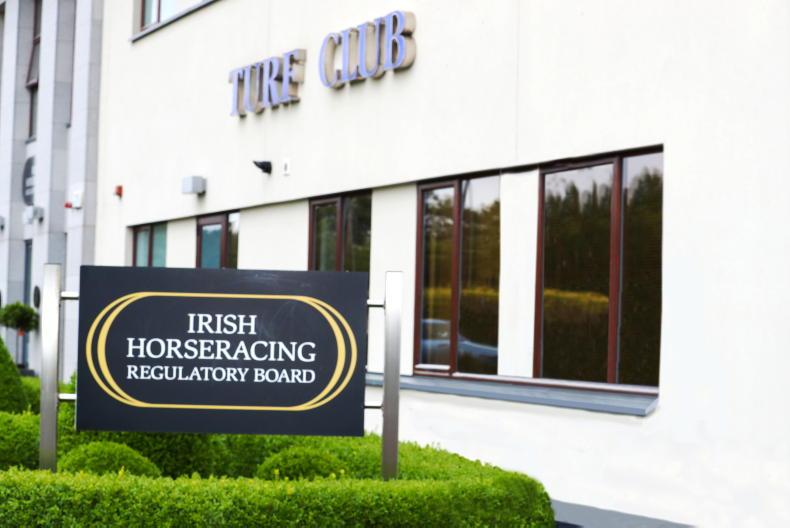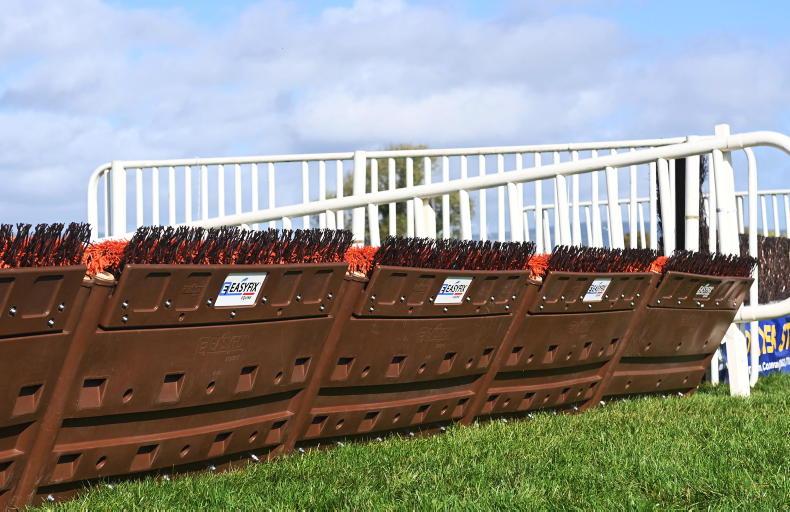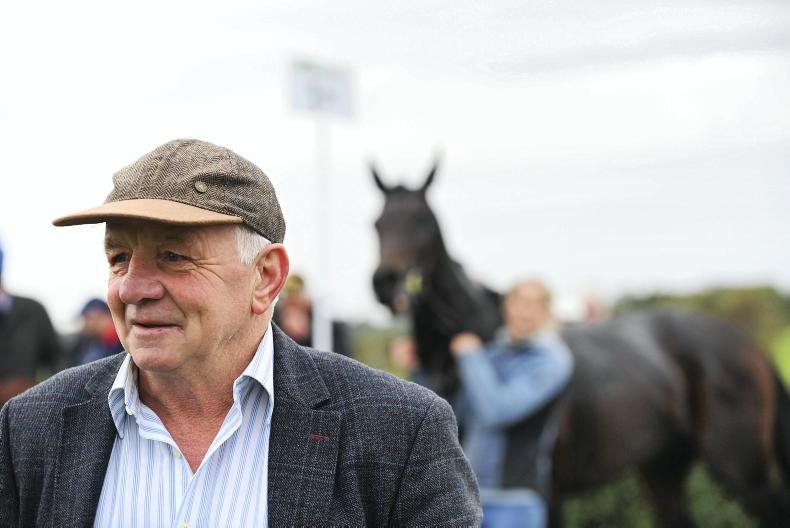THE Irish Horseracing Regulatory Board [IHRB] breached the Charities Act by taking €350,000 from the Jockeys Emergency Fund [JEF] in January 2022 because of a cash shortfall. The money was paid back in April 2022.
That was the main finding of a 19-page report by consultants Forvis Mazars which was published on Tuesday, 16 months after IHRB chief executive Darragh O’Loughlin first revealed to the Public Accounts Committee he had been informed of matters of “grave concern” in the IHRB accounts for 2022.
On the suggestion of HRI at that time, the IHRB appointed Forvis Mazars to independently investigate the issue. Earlier this year O’Loughlin told the Public Accounts Committee the report would cost €80,000 to complete.
It was not envisaged that it would take well over a year for the findings to be published but the compilers say that they "updated" the report following receipt of “significant feedback” from IHRB board members and the HRI chief executive who received draft copies.
There are two parts to the report – the first deals with the early retirement scheme and the second is concerned with the inappropriate transfers made between bank accounts for the IHRB and JEF.
The JEF is a registered charity set up to provide assistance to riders who suffer permanent total paralysis as a result of an injury sustained while race-riding. Forvis Mazars found that IHRB "was not in compliance with the Charities Act" which stipulates that charity funds should only be used for charitable purposes.
Both parts of the report have the 2021 Voluntary Redundancy and Early Retirement Scheme at the core. The scheme was published by Horse Racing Ireland [HRI] and made available to IHRB employees at that time.
IHRB chief executive Denis Egan opted for early retirement in September 2021. In January 2022 he received an exit payment of €385,000. This was 58% above what was allowed for in the scheme but the IHRB said the excess (€142,000) was paid out of its own funds.
The Fovis Mazars review found that the retirement amount paid to Egan “was not made or formally approved” within the criterial of the retirement scheme which was created with the aim of cutting IHRB costs.
Five current IHRB board members told Forvis Mazars they believed HRI supported the retirement payment proposals and that it could be funded through the scheme, but Forvis Mazars say they could not get confirmation of this from HRI chairman Nicky Hartery, chief executive Suzanne Eade or former CEO Brian Kavanagh.
The consultants found evidence of a payment of €243,000 from HRI to the IHRB in respect of Egan’s retirement payment, “but were not provided with any formal/written approval by HRI to sanction a retirement payment to the former CEO of IHRB, in part or in full”
The IHRB accounts for 2021 state that the payment to Egan was made as part of the Voluntary Retirement and Early Retirement Scheme but Forvis Mazars found “this payment was not made or formally approved withing the criteria of the Scheme, and this disclosure is therefore incorrect.”
Transfers
The second part of the report deals with the inappropriate bank transfers. Forvis Mazars confirmed that the IHRB transferred €350,000 from the Jockeys Emergency Fund to the IHRB bank account in January 2022. Donal O’Shea, the former IHRB chief financial officer, said this transfer was “motivated by urgent cashflow pressures in order to pay monthly salaries in the context where monthly HRI funding had not yet been received.”
The consultants say they received no evidence of the cashflow urgency being reported through the proper channels and confirmed that the JEF Trustees were not consulted on, or informed of, the transfer.
Forvis Mazars concluded: “We consider that the IHRB board and executive should have foreseen potential cashflow challenges arising on foot of making redundancy and retirement payments in the absence of corresponding funding being received.”
The €350,000 was returned to the JEF bank account at the end of April 2022 “following further cashflow challenges experienced by the IHRB.”
A total of 10 people were interviewed by Forvis Mazars for the purposes of the report. They were former IHRB chief executive Denis Egan, IHRB head of legal Cliodhna Guy, former IHRB chief financial officer Donal O’Shea, former IHRB chairpersons Harry McCalmont and Martin O’Donnell, HRI chief executive Suzanne Eade and her predecesssor Brian Kavanagh, HRI chairman Nicky Hartery, HRI director Carol Nolan and the IHRB finance manager for the period under review, who is unnamed.
IHRB statement
In a statement issued alongside the report, the IHRB welcomed that the report's findings "identified no additional transactions that were in breach of financial governance requirements other than that which prompted the initial concern, and there was no evidence of misappropriation for personal gain."
The sport's regulator said that the organisation had already implemented "a number of significant changes to enhance financial governance".
Chief executive Darragh O’Loughlin commented: "The IHRB is clear that the incident that gave rise to the Forvis Mazars review absolutely should not have happened. Since we commissioned this review, we have taken significant actions to improve our financial governance procedures and internal controls and we have publicly reported on this work to the Oireachtas Public Accounts Committee. We will continue to address the issues highlighted in the review and further strengthen the organisation, and are on target to have fully implemented the recommendations by the end of the year.
"The IHRB is currently engaged in an ambitious programme of modernisation and change, guided by the IHRB Strategy 2024-2027 which we published late last year. Governance is a key pillar of this strategy, which commits to consistently applying a robust governance framework and a rigorous probity regime.
"We have made significant strides in this direction, including amending our constitution to improve Board diversity and independence, and strengthening our service level agreement with Horse Racing Ireland to ensure greater financial transparency and oversight of governance. Additionally, we are in the process of establishing formal agreements with the various charitable and non-profit entities for which we provide administrative support to clearly define the respective roles and responsibilities.
“Importantly, we have tightened our financial oversight and transaction approval controls to ensure that such an incident will not happen again.”
IHRB chairperson John Byrne added: "I firmly believe that effective corporate governance ensures our ongoing success as a diverse forward-thinking and adaptable organisation. We are resolute in our commitment to making the necessary changes to uphold the highest standards of financial governance and to assure public trust in the IHRB as the regulator of Irish horseracing.”
MORE ON THE STORY IN THE IRISH FIELD NEXT WEEKEND




 This is a subscriber-only article
This is a subscriber-only article
 It looks like you're browsing in private mode
It looks like you're browsing in private mode










SHARING OPTIONS: